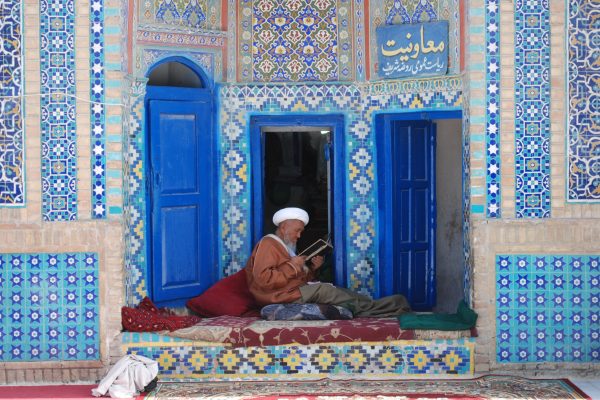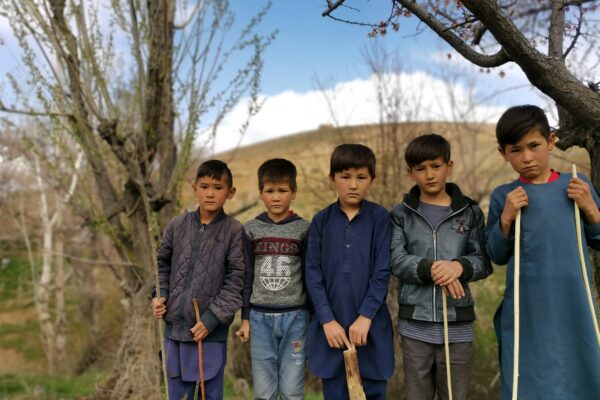It’s been nearly twenty years since I fled Afghanistan for Britain with my family.
It’s been nearly twenty years since I fled Afghanistan for Britain with my family.
It’s been nearly twenty years since I fled Afghanistan for Britain with my family. Although I was only five, I still remember how we shared a tiny makeshift boat with 40 other people and travelled on the back of a lorry with my mum, dad, sister and six-month-old brother. It was a long and dangerous journey, but my parents had no choice – we were desperate to escape the Taliban.
Afghanistan in the ’90s
Afghanistan is a country bordered by Pakistan and Iran. Made of up of many ethnicities, including the Tajiks and Pashtuns, 99 percent of the country practice Islam, with 80–90 percent being Sunni.
At that time (circa.1998), the Taliban controlled 90 percent of the country under an extreme interpretation of Islam. There was no hint of a justice system, with court cases boiled down to tribunals in which those with little legal training would issue rules based on the Taliban’s interpretation of Sharia law.
Adulterers would be sentenced to death by stoning and thieves would have their hands amputated. Heavy restrictions were placed on women and going to school or work was prohibited. Those who were trained doctors weren’t even allowed to work in Kabul’s hospital – and most inhumanely – female patients were restricted, resulting in very poor access to healthcare for them.
Poverty and starvation also spread. As the Taliban took Kabul, deliveries of humanitarian aid were often refused and used as a weapon of war.
As academics, my mother and father were at risk of becoming a target of the terrorist group. He had studied law in the Soviet Union and had just returned to Afghanistan where academics and liberals living around us were brutally murdered. The Taliban have always hated educated men or women – they say this is because they don’t agree with a Western-style of education – but in reality, it threatens their sovereignty and ability to control the minds of people.
This jarred significantly with my family’s principles – we had always been taught to think for ourselves and be strong and steadfast about it.
Present-day Afghanistan
Today, the country continues to be plagued by war, however, there are now traces of a democracy. The constitution blends Islamic teaching with freedoms that would be familiar to those living in Britain, but unfortunately is not fully put into practice. The government’s instability is worrying and does not create an enabling environment for the constitution to be put into place.
The temporary Afghan National Unity Government (NUG), which was established in 2014 to settle a dispute over the presidential election, is still operating alongside President Ashraf Ghani, and the two camps have struggled to work together efficiently.
Terrorism and corruption
In a move toward helping the country’s development, the coalition has pledged to fight both terrorism and corruption. This includes a commitment to democratic elections, scheduled for July 7th, 2018, and the presidential election in 2019. The Afghan Government is doing what they can to lead the way to promoting political and economic security. It is also welcoming support from the U.S. in shutting down terrorist safe havens in neighbouring Pakistan, and working closely with U.S. and NATO forces on the battlefield. Despite this, Afghanistan remains unstable and continues to be exploited by terrorist organisations such as Al Qaeda, Daesh and their affiliates.
Hopes for a democratic future
Afghanistan has a special place in my heart. I have strong ties with friends and family still in the region, who I go back and visit regularly. It’s important to keep close to my heritage which is now firmly intertwined with my British identity. I went back last year and saw first-hand the development of the country, which gave me such hope. There were many more places to go to and visit, and just like in the UK, the best place to find the trendiest hangouts is on Instagram or Facebook. The heart of Kabul is a lively spot for people to visit.
With 70 percent of the population under 25, the country has incredible potential to reform and achieve a vibrant democracy, but unlike the privileged freedoms that
we experience in the UK, it is set amongst a backdrop of uncertainty over religious and civil liberties and regular terror attacks from many violent groups, such as Daesh, Al Qaeda and the Taliban. The most recent saw the devastating attack on the Intercontinental Hotel in Kabul, which killed 19 people during a 12-hour siege. It is a cold, harsh reminder of the challenges the country faces to cut loose of the terrorist threat and enable its progression in a safe environment.
Britain has allowed me the freedom to live away from this constant fear of terror and without any barriers. I’ve worked hard to grab hold of the opportunities that it offers and I am now undertaking a PhD at Cambridge. It’s a far distant cry from what my life could have been if my family decided to stay in Afghanistan. I now have the chance to reach my potential and achieve my dreams, which would have been crushed living under terrorist rule – firstly for simply being a woman – and secondly for wanting an education.
Twenty years ago, I remember being given a marshmallow by a member of the UK Border force – it was a small, but treasured comfort for a terrified five-year-old girl who couldn’t speak English. A lot has changed for me since that memory, from the joy of becoming a British citizen to securing my place as a PhD student at Cambridge. What I have from living in Britain could not be matched in Afghanistan. This is a bittersweet reality.
My hope is that one day, those living there, can have the same freedoms and opportunities that I have experienced in the UK.
by Rabia Nasimi.





